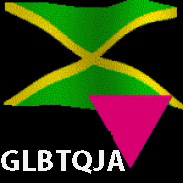In light of the recent physical attack of the University of Technology male student who was alleged caught in a compromising position with another male who escaped his attackers and the subsequent security punches I thought I’d post this article by Atty-at-law Nicholas Manley for our review on Human Rights. See the video compilation below of the mobbing and abuse by the security guards after, take note that these are students.

What are Human Rights?
By definition human rights are our inalienable fundamental rights. Inalienable means that which cannot be taken away. So our human rights are bestowed upon us from the moment we are born and, thus we are all entitled to these rights. Because we are entitled to our human rights and they cannot and should not be taken away from us, we as a people must strive to protect them, government should protect them and breaches of our rights should be highlighted and addressed appropriately.
Human rights are the same for everyone irrespective of colour, class or creed, and are applicable at both the national and international level. In Jamaica, our human rights are enshrined in and protected by our Constitution. Internationally, there have been numerous laws and treaties enacted specifically for the protection of human rights.
Milestone document
Most notably of these is the Universal Declaration of Human Rights. This declaration is seen as a milestone document in the history of human rights. It was proclaimed by the United Nations, in 1948, as a common standard of achievements for all nations, and sets out the fundamental human rights to be universally recognised and protected.
The Declaration sets out the following rights:
All human beings are born free and equal in dignity and rights.
Everyone has the right to life, liberty and security of person.
No one shall be held in slavery or servitude.
No one shall be subjected to torture or to cruel, inhuman or degrading treatment or punishment.
Equality before the law
Everyone has the right to an effective remedy by the competent national tribunals for acts violating the fundamental rights granted him by the constitution or by law.
No one shall be subjected to arbitrary arrest, detention or exile.
Everyone is entitled in full equality to a fair and public hearing by an independent and impartial tribunal, in the determination of his rights and obligations and of any criminal charge against him.
(1) Everyone charged with a penal offence has the right to be presumed innocent until proved guilty according to law.
No one shall be subjected to arbitrary interference with his privacy, family, home or correspondence, nor to attacks upon his honour and reputation. Everyone has the right to the protection of the law against such interference or attacks.
Everyone has the right to freedom of movement
Everyone has the right to a nationality.
(1) Men and women of full age, without any limitation due to race, nationality or religion, have the right to marry and to found a family. They are entitled to equal rights as to marriage, during marriage and at its dissolution.
(2) Marriage shall be entered into only with the free and full consent of the intending spouses.
(3) The family is the natural and fundamental group unit of society and is entitled to protection by society and the State.
(1) Everyone has the right to own property alone as well as in association with others.
(2) No one shall be arbitrarily deprived of his property.
Everyone has the right to freedom of thought, conscience and religion
Everyone has the right to freedom of opinion and expression; this right includes freedom to hold opinions without interference and to seek, receive and impart information and ideas through any media and regardless of frontiers.
(1) Everyone has the right to freedom of peaceful assembly and association.
(2) No one may be compelled to belong to an association.
(1) Everyone has the right to take part in the government of his country, directly or through freely chosen representatives.
(2) Everyone has the right of equal access to public service in his country.
(3) The will of the people shall be the basis of the authority of government;
Everyone has the right to education.
Everyone is entitled to all the rights and freedoms, without distinction of any kind, such as race, colour, sex, language, religion, political or other opinion, national or social origin, property, birth or other status. Furthermore, no distinction shall be made on the basis of the political, jurisdictional or international status of the country or territory to which a person belongs, whether it be independent, trust, non-self-governing or under any other limitation of sovereignty.
ENDS
Additional materials
Earl Moxam’s RJR discussion on the issue recently:
My two cents as the dust settles (part one)
and a clip from Jerry Small show on NEWSTALK 93FM as the airwaves continue to heat up with the issue.
